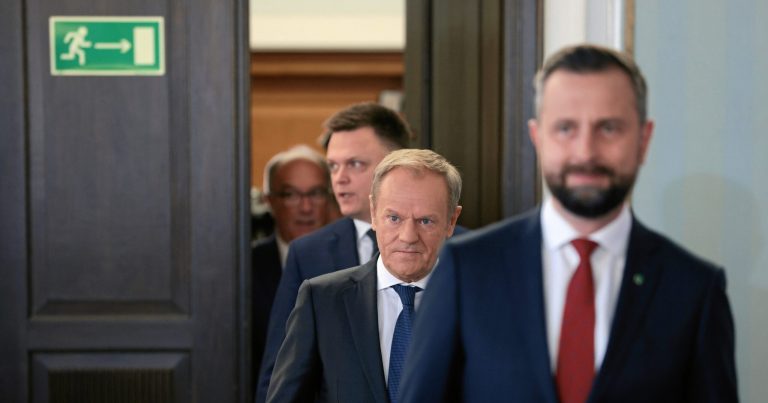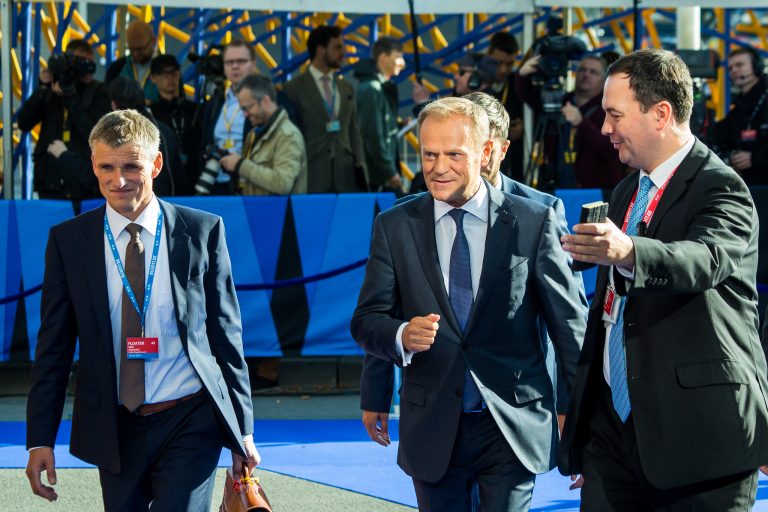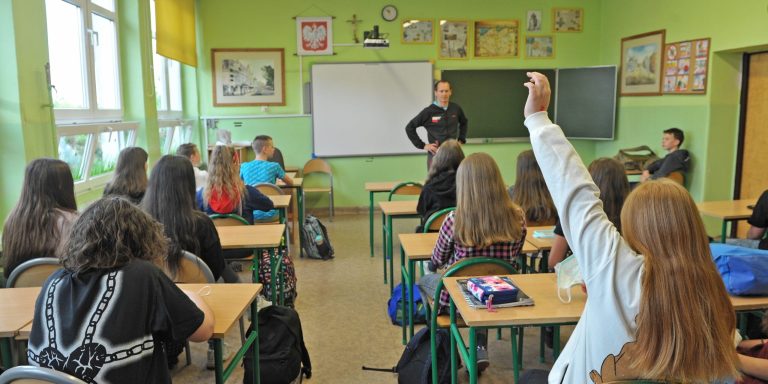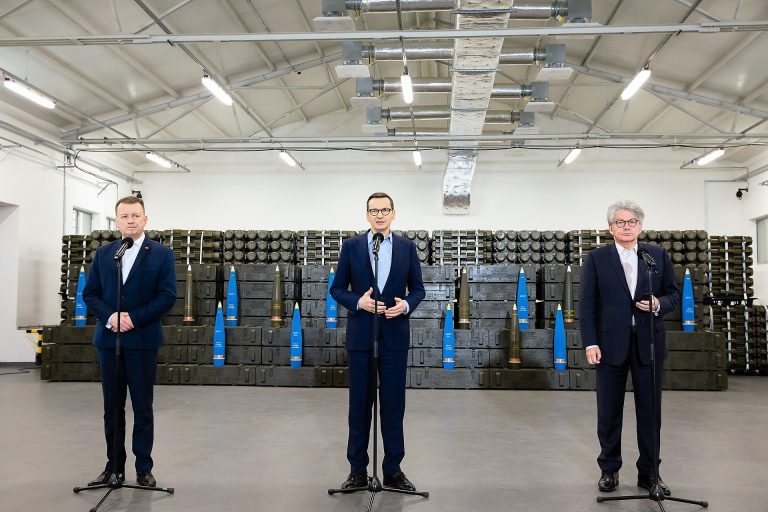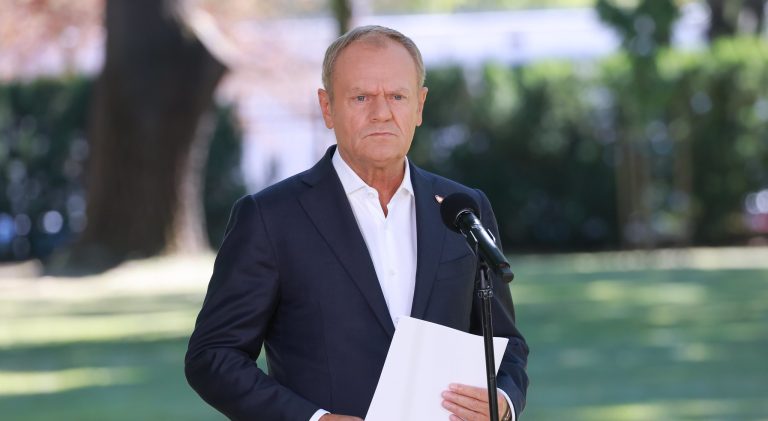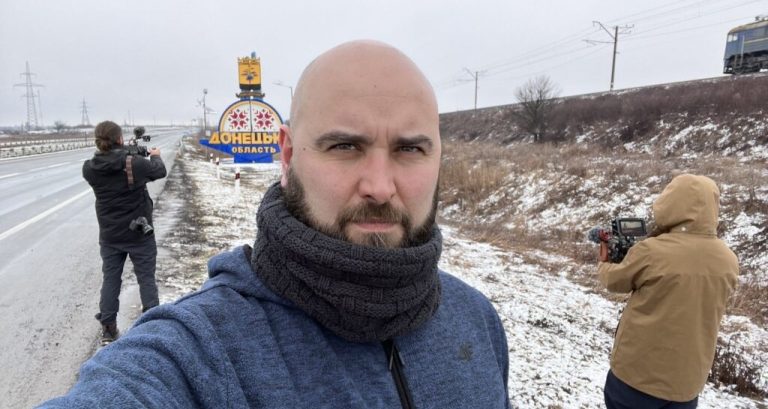Controversy after Polish state TV asks candidate to speak in English at EU election debate
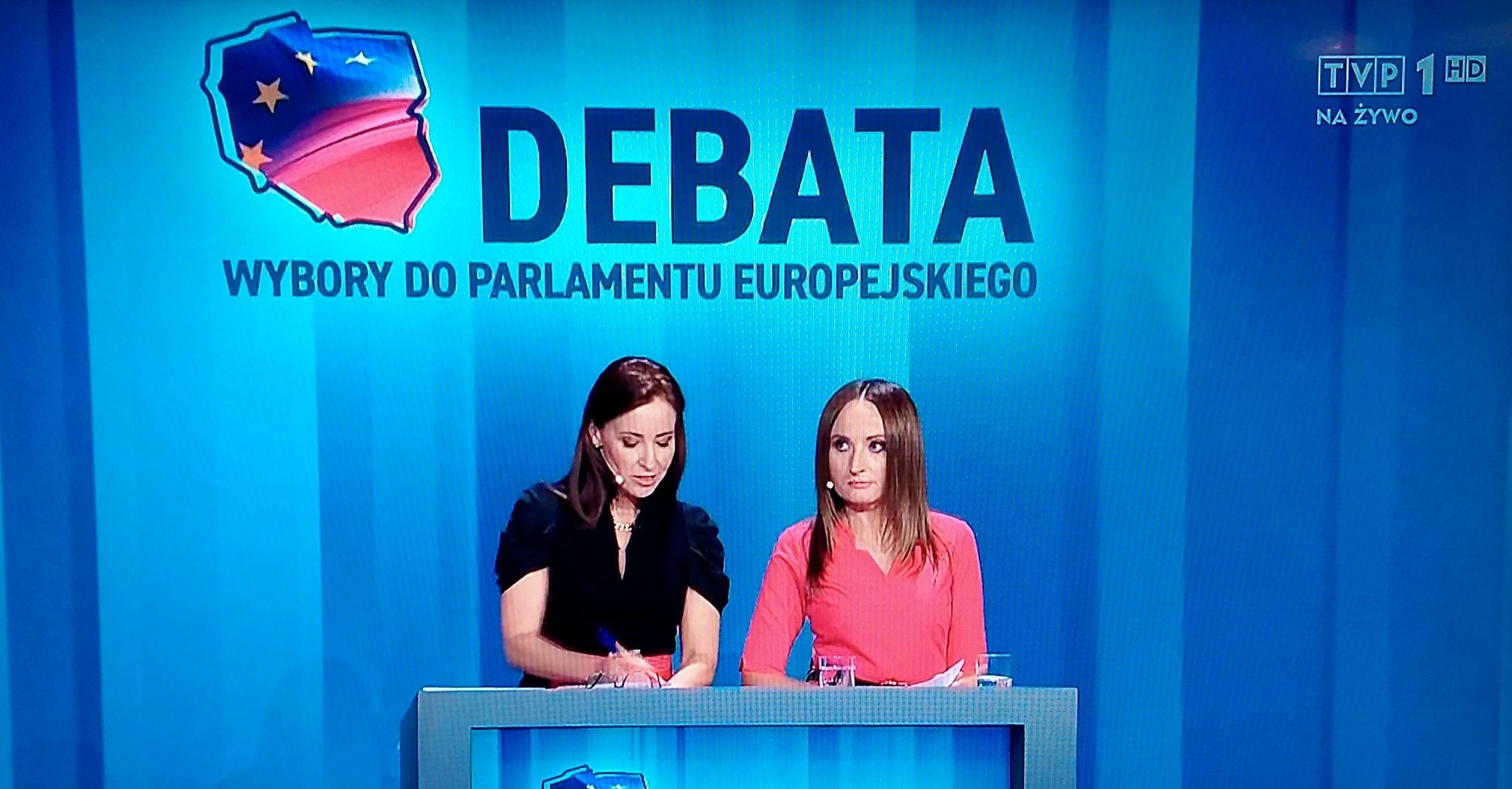
Right-wing opposition parties have criticised state broadcaster TVP after it unexpectedly asked participants in a European election debate to speak in English. Some even accused the station of setting up the question in collaboration with the ruling coalition.
On Wednesday evening, TVP hosted a televised debate with representatives of the main groups standing in Sunday’s elections. While the event was held in Polish, at the end the two presenters asked candidates if they wanted to deliver a final message in English in order to “impress your voters”.
Immediately, Borys Budka, a candidate from Prime Minister Donald Tusk’s centrist Civic Coalition (KO), Poland’s main ruling group, took up the opportunity and spoke to viewers in English.
To co się wydarzyło na końcu tej debaty to jedno wielkie XD pic.twitter.com/pmvhs3AXTa
— Mateusz Pluta (@MateuszPluta02) June 5, 2024
Another participant, Michał Kobosko of the centrist Third Way (Trzecia Droga), which is also part of the ruling coalition, volunteered to give a message in English too.
However, instead, Stanisław Żółtek of the far-right Polexit party interrupted to protest against the question. “Are we not in Poland?” he asked in Polish.
“Yes, we are in Poland,” replied presenter Justyna Dobrosz-Oracz (also in Polish). “But I don’t know if you know that in Brussels there are two obligatory languages, English and French, and if you are to go to the European Parliament you will have to influence it in discussions behind the scenes.”
That then prompted Beata Szydło, an MEP and former prime minister from the national-conservative Law and Justice (PiS) party, to correct Dobrosz-Oracz by pointing out that in the EU all national languages have equal legal status.
“Let’s not be ashamed of the Polish language,” she added, after which Marek Woch, representing the Nonpartisan Local Government Activists (BS), declared that “we have an obligation to use the Polish language abroad”.
Afterwards, PiS spokesman Rafał Bochenek criticised the conduct of the debate, saying that “Tusk’s TVP was predictable and biased” in its favouritism towards the ruling coalition and in not respecting the agreed rules of the event.
During the time PiS was in power from 2015 until the end of 2023, state media, in particular TVP, were turned into propaganda mouthpieces by the ruling party. They were used to praise the government and attack its opponents.
After Tusk’s coalition took power in December, it promised to “depoliticise” public media and immediately carried out a controversial takeover of state-owned outlets designed to remove PiS influence. However, since then TVP has been accused of instead showing bias towards the new government.
State TV has shown a pro-government bias since its takeover by @donaldtusk’s new administration, a report has found
The station’s coverage has omitted information disfavouring the government and aired criticism of opposition-aligned President @AndrzejDudahttps://t.co/hkxau2BY6V
— Notes from Poland 🇵🇱 (@notesfrompoland) February 23, 2024
Speaking to news website Gazeta.pl, Żółtek said that he believed the part of the debate conducted in English was a “set-up” between TVP and the ruling coalition.
“The [presenters] started speaking in English and Budka was ready to answer, he immediately recited a prepared text,” said Żółtek. “To say that no one knew the questions [in advance] is ridiculous.”
Bartosz Bocheńczak, campaign chief for the far-right Confederation (Konfederacja) party, likewise told Gazeta.pl that the situation was “an obvious set-up”.
“The [presenters] suddenly started speaking in English and, of course, the only one who was prepared was Borys Budka,” said Bocheńczak. “Public television is fraternizing with the ruling party.”
– Panie zaczęły mówić po angielsku i pan Budka był przygotowany na odpowiedź, od razu z marszu wyrecytował przygotowany tekst. To była ustawka – twierdzi Stanisław Żółtek, prezes PolExitu, uczestnik debaty w TVPhttps://t.co/74fy8eAeHN
— Gazeta.pl (@gazetapl_news) June 6, 2024
Budka, however, told Gazeta.pl that he was “surprised by the outrage that during the debate we were asked to say goodbye in English”.
“I can’t imagine standing to be an MEP without being able to communicate in English,” he continued. “Of course, I understand that you should perform in Polish in the [main plenary] hall, but I can’t imagine walking around in the lobby with my head down.”
Notes from Poland is run by a small editorial team and published by an independent, non-profit foundation that is funded through donations from our readers. We cannot do what we do without your support.
Main image credit: TVP (screenshot)

Daniel Tilles is editor-in-chief of Notes from Poland. He has written on Polish affairs for a wide range of publications, including Foreign Policy, POLITICO Europe, EUobserver and Dziennik Gazeta Prawna.

